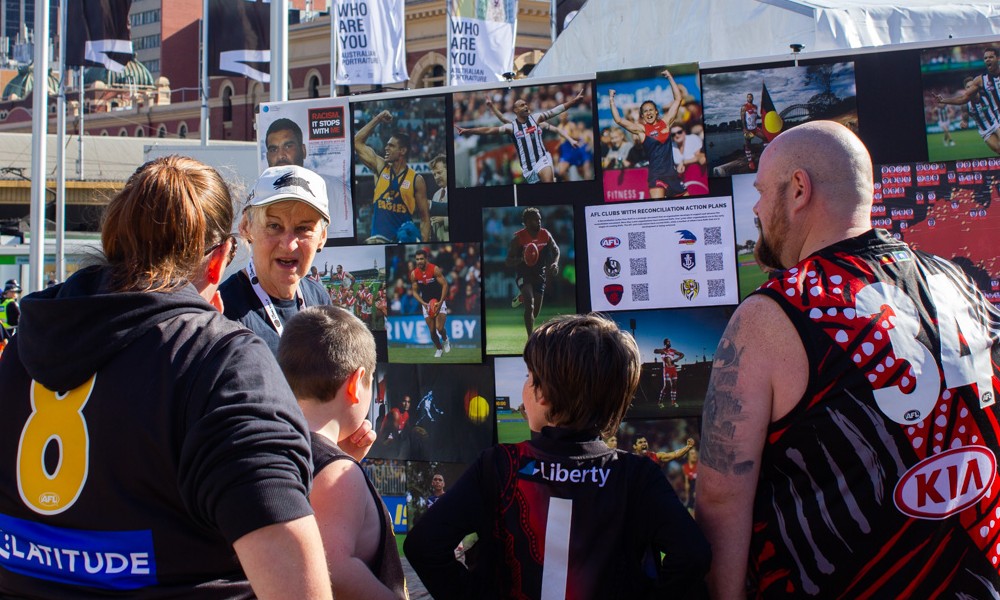The Australian Reconciliation Barometer (ARB) measures attitudes towards reconciliation, using the five dimensions of reconciliation – race relations, equality and equity, unity, institutional integrity, and historical acceptance – to inform data collection and analysis.
The Barometer is a biennial, national research study, undertaken by Reconciliation Australia since 2008. It is the only survey undertaken in Australia that measures the progress of reconciliation between Aboriginal and Torres Strait Islander people and non-Indigenous Australians.

The 2022 Australian Reconciliation Barometer found increased experiences of racism among Aboriginal and Torres Strait Islander people. Here a family dicusses racism in sports during the 2022 Long Walk in Melbourne. Photo: Poppy Paraw, courtesy of Reconciliation Victoria
The 2022 Australian Reconciliation Barometer shows that Australia’s journey towards reconciliation and greater justice for First Nations Peoples is on track.
It shows the building blocks of reconciliation are becoming embedded in Australia’s thinking – including Voice, Treaty and Truth, as well as trust and national cohesion. However, it also indicates that experiences of racism are increasing.
Survey notes
- 532 Aboriginal and Torres Strait Islander people (associated with a margin of error of +/-4.2%)
- 1990 non-indigenous people (associated with a margin of error of +/-2.2%.)
- The combined total base sample of 2522 is associated with a margin of error of +/-1.9%
- Both samples weighted to be representative in terms of age group, gender and location (state and territory populations), as per Australian Bureau of Statistics 2021 Census data.
- A key change in 2022 has been the combination of non-Indigenous and First Nations samples to create the final general community sample. This was necessary to accommodate the new survey questions designed for non-Indigenous or First Nations respondents only.
Read the 2022 Australian Reconciliation Barometer summary and full report
Read the Media Release



